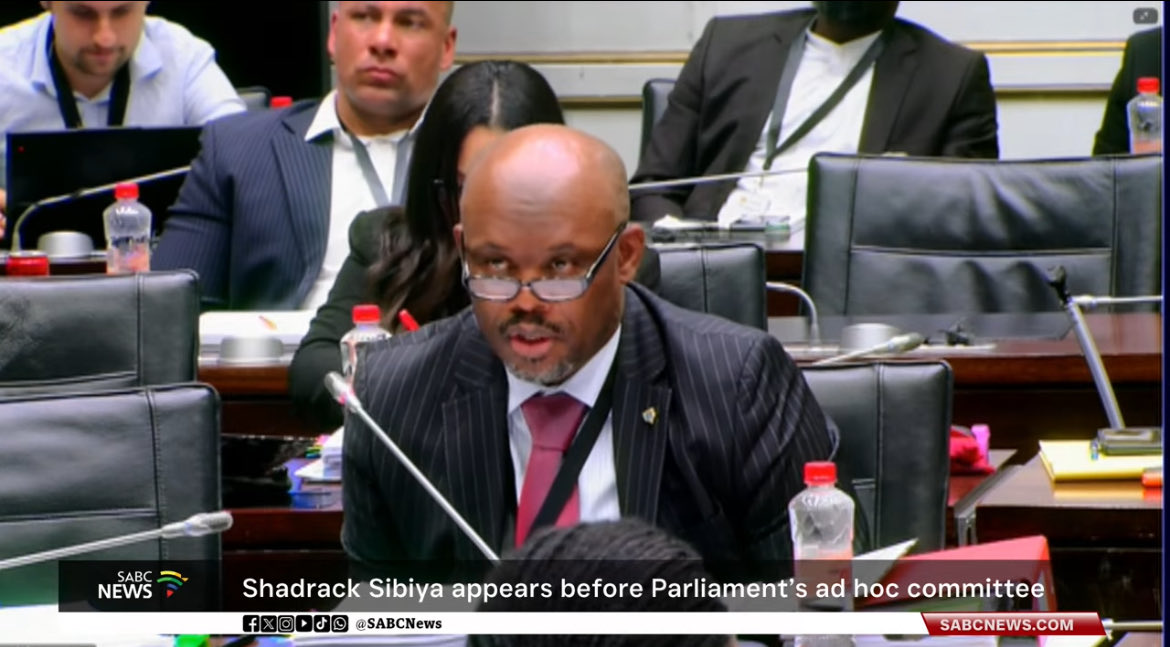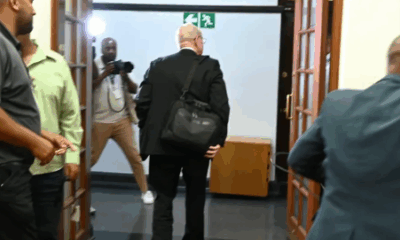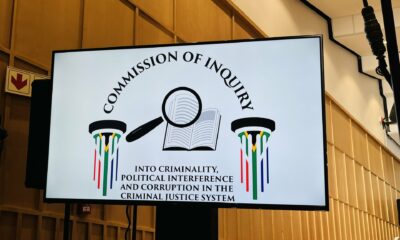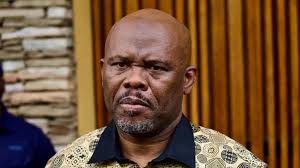News
“Sibiya Accuses Mkhwanazi of Misleading South Africa Amid Police Succession Battle”

People Are Being Taken for a Ride: Sibiya Takes Aim at Mkhwanazi
In a dramatic testimony before Parliament’s ad hoc committee on Tuesday, Deputy National Police Commissioner Shadrack Sibiya leveled serious accusations against KwaZulu-Natal Police Commissioner Nhlanhla Mkhwanazi, alleging that the latter is misleading the public and manipulating social media for personal gain.
The inquiry, convened at the Good Hope Chamber, is investigating Mkhwanazi’s claims of political interference, corruption, and collusion within South Africa’s criminal justice system. But Sibiya painted a picture of a broader internal struggle, suggesting that the high-profile dispute is less about justice and more about positioning within the South African Police Service (SAPS).
The Political Killings Task Team: Misunderstood or Mismanaged?
At the heart of the debate is the so-called disbandment of the KwaZulu-Natal Political Killings Task Team (PKTT). Mkhwanazi has alleged that Sibiya and Police Minister Senzo Mchunu conspired to dissolve the unit, ostensibly to protect criminal syndicates.
Sibiya countered that the PKTT was never formally disbanded. Rather, he argued, the 121 dockets associated with the team were transferred to SAPS headquarters in March following a 31 December 2024 instruction from Mchunu to National Police Commissioner Fannie Masemola. He insisted that the cases were better suited to the murder and robbery unit and disputed claims that they had been neglected.
“The national commissioner was consulted. He never opposed the process. The closure report and transfer of dockets were done following clear directives,” Sibiya told MPs, directly contradicting Masemola’s earlier testimony that he only learned about the matter after returning from leave in January 2025.
Sibiya added that complaints from KZN communities about the PKTT’s conduct prompted the November 2024 meeting that initiated the process. “This wasn’t unilateral action. I was invited by the national commissioner’s office to handle this,” he said, noting that he is currently suspended pending disciplinary proceedings.
Accusations of Misleading the Public
Sibiya didn’t hold back in criticizing Mkhwanazi. He accused the KZN police chief of deliberately misrepresenting the PKTT’s mandate, claiming that the dockets were strictly KZN-related and bore no connection to major criminal syndicates in Gauteng.
“These statements are designed to manipulate the public. People are being taken for a ride. The idea that these cases are related to the Big Five or other high-profile criminals is false,” Sibiya said, adding that Mkhwanazi’s comments should not automatically be taken at face value.
A Battle for the Top Job?
Questions from MPs suggested the conflict may be about more than policing. DA MP Glynnis Breytenbach asked if the controversy surrounding Mkhwanazi’s press conference is part of a “succession battle” within SAPS. Sibiya agreed, noting that the allegations could be aimed at blocking his bid to lead the Hawks following Godfrey Lebeya’s retirement.
“The next thing you see is newspapers talking about Sibiya versus Mosikili versus Mkhwanazi. This isn’t just about task teams; this is about positioning for the top job,” he said.
Social Media Influence: Creating a Monster
Sibiya also warned that Mkhwanazi’s social media presence, particularly on TikTok, is dangerously shaping public opinion. He criticized Mkhwanazi’s 6 July media briefing, where he wore a camouflage uniform, and said it signals a new kind of policing persona that could undermine accountability.
“We are creating a monster that no one can control. This can’t continue in our country,” Sibiya cautioned.
Public Reaction and Cultural Context
South Africans following the hearing on social media were quick to react, with many expressing concern about the politicization of police processes. Commentators noted that the dispute reflects broader frustrations with SAPS’ internal politics and the challenges of maintaining transparency and trust in law enforcement.
Analysts suggest that the PKTT controversy also highlights tensions between national directives and provincial policing priorities, particularly in KZN, where political killings remain a sensitive issue with deep social ramifications.
What Comes Next?
As the parliamentary inquiry continues, all eyes are on both Sibiya and Mkhwanazi. The debate is no longer just about task teams or dockets, it’s about power, perception, and the future leadership of South Africa’s police service.
For South Africans, the question remains: who can be trusted to lead SAPS without letting politics dictate justice?
{Source: The Citizen}
Follow Joburg ETC on Facebook, Twitter , TikTok and Instagram
For more News in Johannesburg, visit joburgetc.com



























